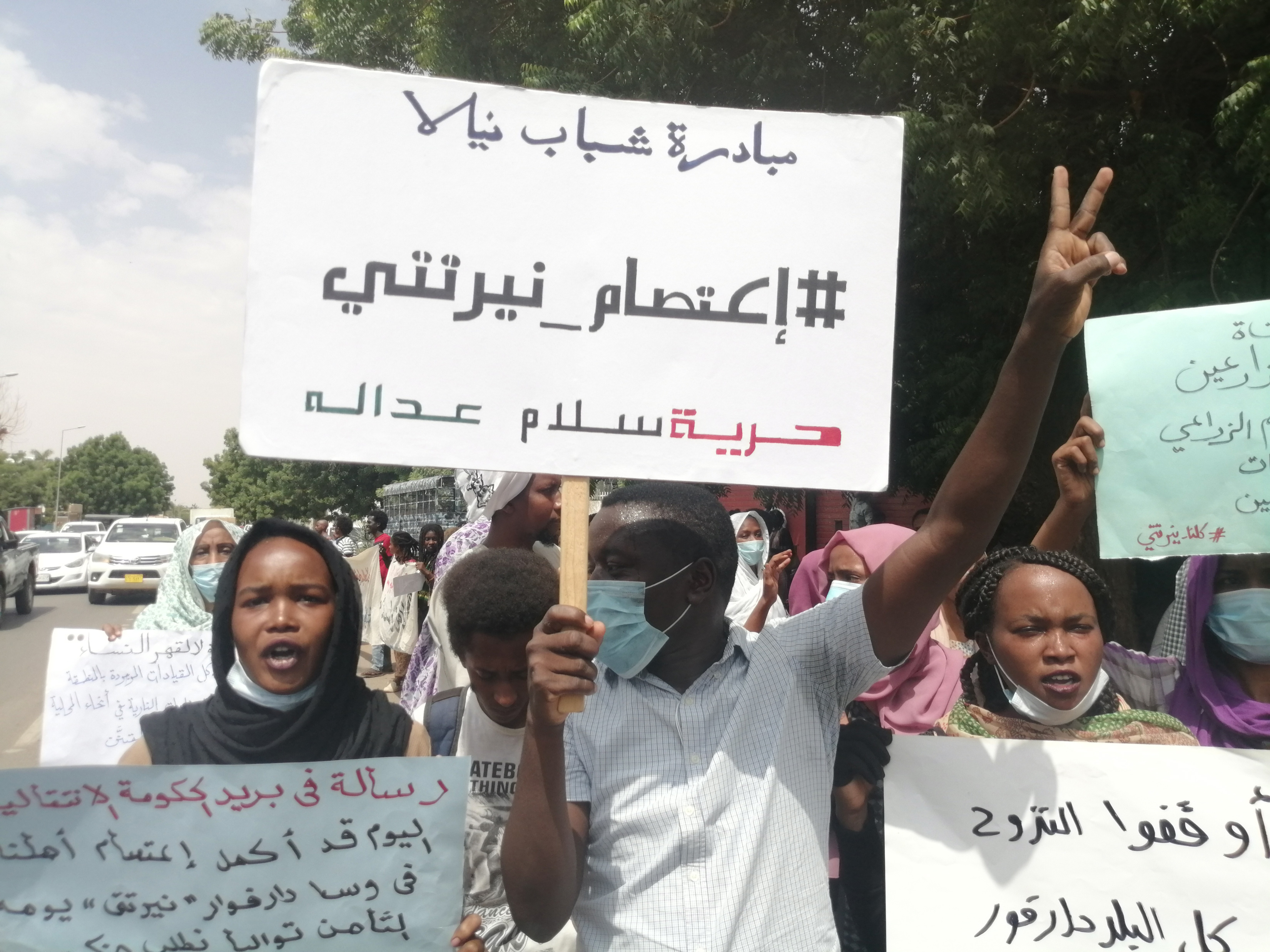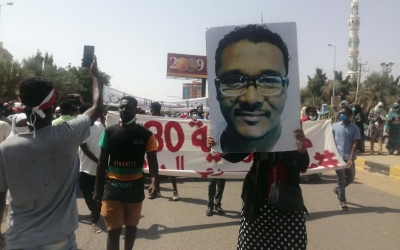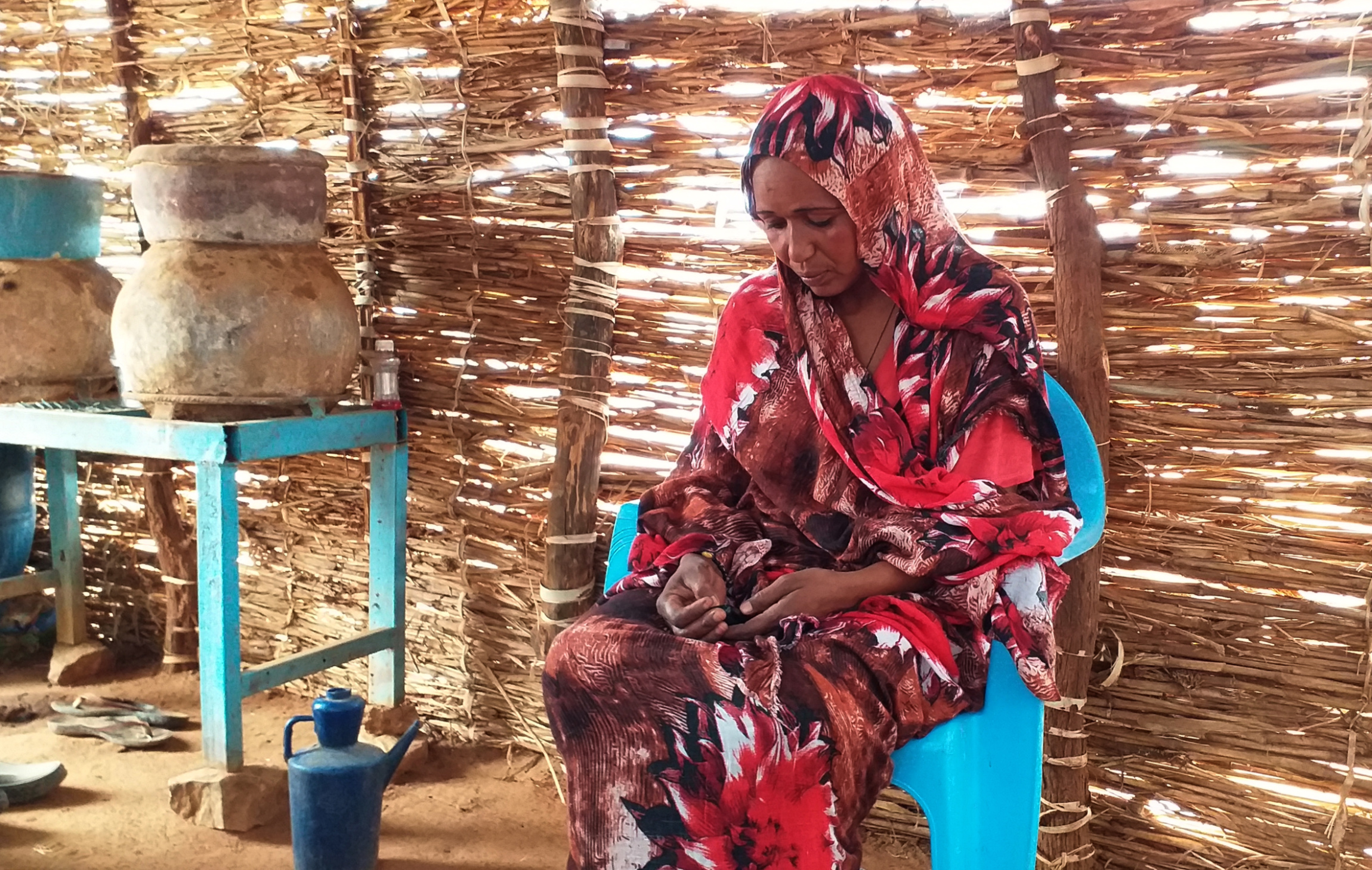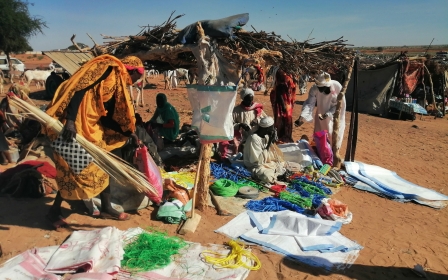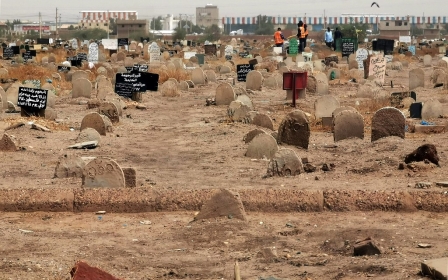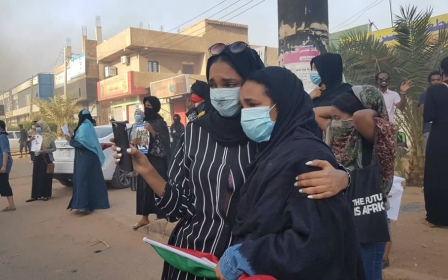Abuses in Sudan's Darfur spur mass protest and calls for Bashir's conviction
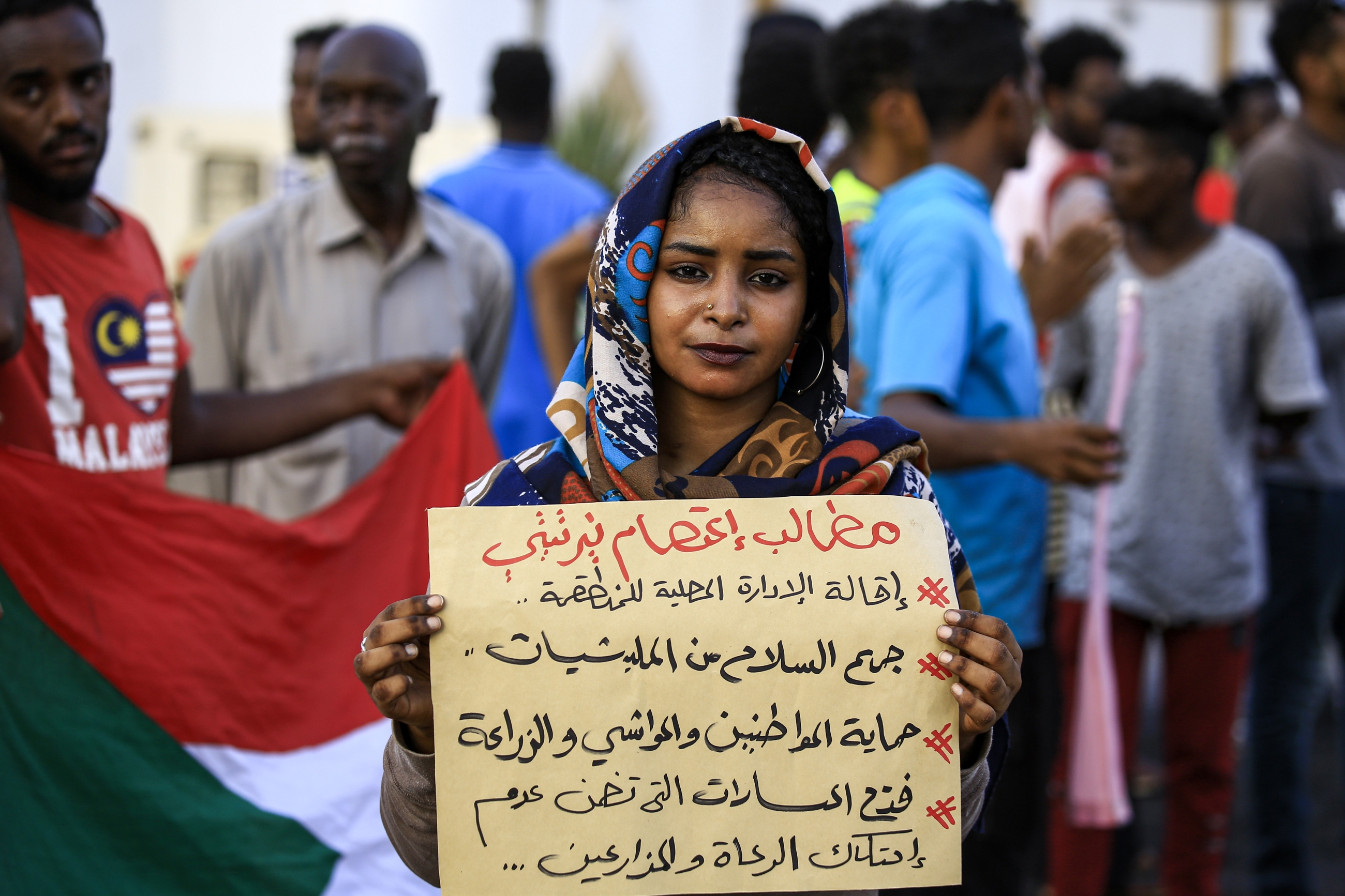
A sit-in in a town of Sudan’s Central Darfur demanding justice and security after recent incidents of killings and looting have quickly become a rallying cry across the region whose people have suffered for decades from a lack of security in the area.
For over a week now, thousands of Sudanese, mostly internally displaced people from across Darfur, have joined the sit-in held in Nertiti town to demand a stop to ongoing attacks by pro-government militia, urging the transitional government to draw attention to their basic demands.
The sit-in has received widespread solidarity from pro-democracy protesters all over Sudan, and Prime Minister Abdalla Hamdok has expressed support for people’s demands.
Surrounded by the Marra Mountains, the small town of Nertiti is situated in a fertile agricultural area inhabited by Fur tribe farmers who used to cultivate produce that supplied the majority of Sudanese markets before the eruption of the war in the region in 2003.
Demands
New MEE newsletter: Jerusalem Dispatch
Sign up to get the latest insights and analysis on Israel-Palestine, alongside Turkey Unpacked and other MEE newsletters
The sit-in, held in front of the army headquarters, was organised after unidentified armed men killed three farmers near the town. Protesters have demanded the protection of civilians, protection of the upcoming agricultural season, sacking of the local authority and the area’s army commander, and the withdrawal of militias from the area.
They have also raised slogans calling for the government to hand over former president Omar al-Bashir and former regime officials to the International Criminal Court.
The conflict in Darfur broke out in 2003 when mainly non-Arab African tribes, complaining of marginalisation, took up arms against Sudanese government forces under Bashir.
The fighting killed 300,000 people and displaced 2.5 million others, according to the United Nations.
Protester Gaafar Ishag told Middle East Eye over the phone from Nertiti that the aim of the sit-in is to make the voices of the victims and the grassroots of Darfur heard by the government.
He said that the attacks by the Janjaweed militias are ongoing in the town and in other places around the Mara Mountains in the centre of the region.
"The people of Darfur want to raise their voices and want to feel that they are first-class citizens because they have not felt any difference in their lives after the revolution," Ishag said, in reference to the protest movement that deposed longtime dictator Bashir last year.
Another protester, Fatima Adam, said there has been an increase in rape and sexual assaults against women after the revolution.
"The government militias, especially the Rapid Support Forces (RSF), want to drown our voices and distance us from the main national demands of justice, peace and freedom for the entire country,” she told MEE.
Gathering of victims
Another protester, Mohammed Nour Idriss, called on all Sudanese to support the people of Nertiti, saying their demands are fair and deserve the world's solidarity.
He told MEE that thousands of people from other cities in Darfur including El-Fasher, Nyala, Zalingei and El-Geneina have come to the town to support the protesters.
“The authorities have tried to prevent the people coming from other cities to join the sit-in, but the masses have opened the roads leading to Nertiti from different directions,” Nour Idriss said.
Another protester, Adam Osman, from Abushok IDP camp, said that thousands of internally displaced people from other camps in different parts of region are now joining the sit-in.
"This sit-in is very symbolic to the crisis of Darfur and the need for justice. It represents nearly three million IDPs who have been stranded across the region for nearly two decades now," he said.
“The demands of Darfuris are being represented in the local demands of the people of Nertiti, so I think this sit-in will extend to different parts of the region in the coming days.”
Hamdok said people’s demands are justified and sent a delegation to deal with their issues on Sunday.
Addressing the media in Khartoum, government spokesman and information minister, Faisal Mohammed Salih, sent his apologies to the people of Nertiti for the government’s delay in responding to their demands.
A government delegation, including four ministers, travelled to Nertiti on Sunday to meet the people. However, the protesters said in a statement that they refuse to meet any delegation unless it has high-level presidential representation with full authority to solve the problem.
“We don’t like to loop in the same previous circles of the promises from the local government or even the centre, so we want a presidential delegation with strong authorisation to come and sit with us to solve the problems, especially the insecurity,” said a statement by the Nertiti protesters.
"We don't want to run in the same circle of promises by the local government or even the central [government], we want a presidential delegation with vast authority to take charge of the issue. as well as the security issue, and solve it," the statement said.
For its part, Darfuri rebel group the Sudan Liberation Movement (SLM-AW), which is led by Abdul Wahid al-Nur and has a strong military presence in the nearby Marra Mountains, has announced its full support for the Nertiti sit-in.
SLM-AW spokesman Mohammed Alnair told MEE that while the initiative by the civilian component of the transitional government was appreciated, it can’t solve the problem.
“We all know that the militias that attack civilians and control the situation in the region are in the hands of the army,” he said.
Last June, Sudan’s government and SLM-AW traded accusations of violating a ceasefire in Marra Mountains for the first time since Bashir’s overthrow.
Civic movement
In Khartoum and other cities of Sudan, political parties, unions and resistance committees have expressed their solidarity with the people of Nertiti, calling on the government to meet their demands immediately.
The Sudanese Professional Association (SPA), resistance committees and other protesters organised a march in Khartoum on Sunday in support of the sit-in.
The protesters gathered in front of the Council of Ministers headquarters in Khartoum and submitted a petition to Hamdok, urging him to respond to the people in Nertiti.
The protesters raised slogans against racism, paramilitary militias and widespread insecurity in Darfur, especially Nertiti.
“Stop racism...all Sudan is Darfur,” they chanted.
Malik Dahab, a Sudanese political analyst based in El-Fasher city, told MEE that the sit-in in Nertiti is historical and marks the first civic movement in a region considered one of the world’s conflict hotspots.
“The people of Darfur are really tired of the ongoing violence they have been witnessing for around two decades, so they decided to use the peaceful means of struggle to achieve their rights,” he said.
Dahab noted that the sit-in is expected to extend to all of the troubled region as the feeling of injustice and people’s demands are the same across the area.
“The demands of the Nertiti people represent the demands of the region’s IDPs, including security, justice, disarming of militias, dismantling of old regime institutions and reconciliation that would enable them to return to their homelands,” he said.
Middle East Eye delivers independent and unrivalled coverage and analysis of the Middle East, North Africa and beyond. To learn more about republishing this content and the associated fees, please fill out this form. More about MEE can be found here.


